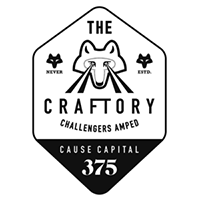The Poison Chalice of Coolness
Or: How to avoid your one-way ticket to irrelevance
We live in extraordinary times, where new, digitally-activated start-up brands continually topple the hegemony of big-business with unruffled ease. The product landscape in many consumer categories already looks unrecognisable compared to just a few years ago - and when upstart Fever-Tree tonic replaces venerable Schweppes even on board British Airways flights, you know that no holy cow is safe anymore. How fabulously exciting that is.
Yet with all this activity, the question of how to separate fads from principles remains. Which of these new brands will still be around in ten years’ time? This is where the poison chalice of coolness makes its entry.
Cool brands have always existed – in all product categories. Yet cool brands don’t have longevity. By definition: their value derives from exclusivity. They deliver utility because you and I are in the know about them, but nobody else is. And that means that the more a cool brand grows, the less it has value to consumers – which is why, eventually, all cool brands become too big and are then replaced by something new. Whoops.
In contrast, real challenger brands aren’t cool. They derive their value not from exclusivity, but from the mission and purpose they stand for: be it their saying “no” to harmful ingredients, or “yes” to a fairer society, or “to hell with” airbrushed beauty. That, however, opens up the potential for limitless scale for challenger brands – because in contrast to merely cool brands, real challengers deliver the same mission-driven value to consumers regardless of whether 10 people buy their product, or 10 million. We buy challenger products because we identify with the mission they stand for – and the more people around us who sign up to that same mission, the more we feel validated, and good about ourselves.
So beware of brands that are just cool for the sake of being cool or insubordinate. The future belongs to those who fight for a genuine mission or purpose. And, ironically, the purity of that single-minded mission is what makes them enduringly cool.
That however begs the question: are Fever-Tree, Charlotte Tilbury, Glossier and Harry’s Razors long-life challengers… or just flash-in-the-pan cool?
What do you think?
Ernesto Schmitt is co-founder at The Craftory, the brand-new counter-corporate anti-VC on a $300M mission to back the world's boldest insurgent challenger brands in the consumer goods space.


